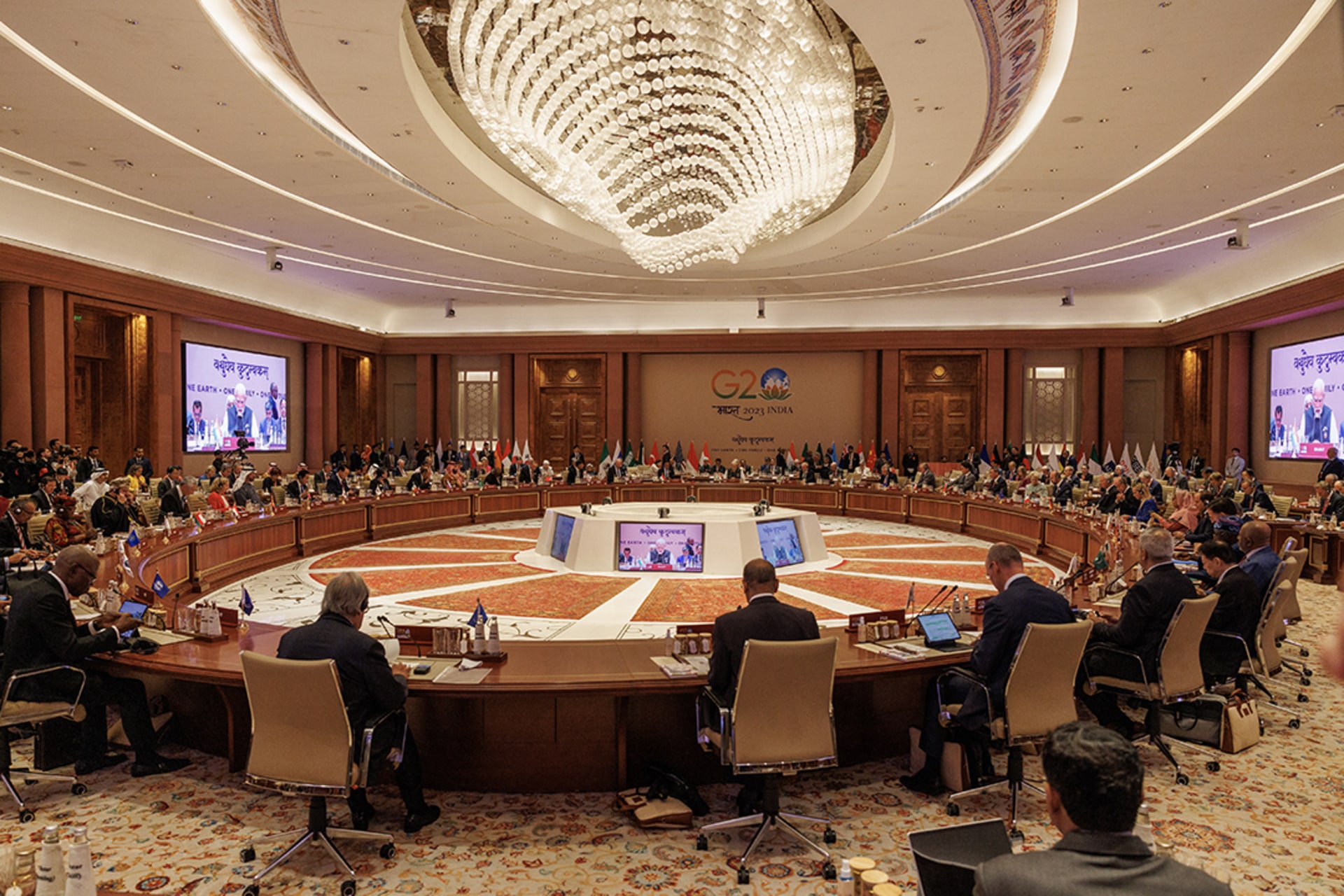The Al-Qaeda-Hezbollah Relationship
Published
Al-Qaeda and Hezbollah are supposedly rival groups on opposite sides of sectarian lines. Yet recent statements from senior al-Qaeda leadership suggest a common enemy may be drawing them together, and experts believe such a liaison could pose grave new dangers for the United States.
This publication is now archived.
Introduction
Experts disagree over the nature of the relationship between al-Qaeda and Hezbollah. Some analysts see the groups as natural allies because of their common interests, while others perceive hostility stemming from sectarian rivalry: Al-Qaeda is a Sunni group and Hezbollah is Shiite. Representatives for the groups have at times spoken unfavorably of one another, though al-Qaeda spokesman Ayman al-Zawahiri bridged the rhetorical divide in a July 27 video in which he acknowledged Hezbollah’s fight against Israel is indeed jihad, saying “We cannot just stand idly by while we see all these shells fall on our brothers in Gaza and Lebanon.” In fact, evidence suggests al-Qaeda and Hezbollah have cooperated in the past and may do so again.
Do Hezbollah and al-Qaeda work together?
They have in the past. As former National Security Council members Daniel Benjamin and Steven Simon describe in their book, The Age of Sacred Terror, a small group of al-Qaeda members visited Hezbollah training camps in Lebanon in the mid-1990s. Shortly thereafter, according to testimony from Ali Mohammed, an Egyptian-born U.S. Army sergeant who later served as one of bin Laden’s lieutenants and pled guilty to participating in the 1998 embassy bombings in eastern Africa, Osama bin Laden and Imad Mugniyeh met in Sudan. The two men, who have both topped the FBI’s list of most-wanted terrorists, agreed Hezbollah would provide the fledgling al-Qaeda organization with explosives and training in exchange for money and manpower. Though it is unclear whether all terms of that agreement were met or the degree to which the two groups have worked together since. Douglas Farah, a journalist and consultant with the NEFA Foundation, a New York-based counterterrorism organization, says Hezbollah helped al-Qaeda traffic its assets through Africa in the form of diamonds and gold shortly after the 9/11 attacks. U.S. and European intelligence reports from that time suggest the two groups were collaborating in such activities as money laundering, gun running, and training. It’s not clear whether these past collaborations were isolated incidents or indications of a broader relationship.
Do al-Qaeda-Hezbollah ties pose a threat to the United States?
Some experts are increasingly concerned by the threat posed by Hezbollah outside its normal area of operations. “I think we should be quite concerned,” Farah says, “Hezbollah will eventually be pushed back a bit and will see striking outside their borders as the way to go.” There is already some evidence suggesting the United States could be a target. According to Ed Royce, chairman of the House subcommittee on terrorism and non-proliferation, “We’re seeing a pattern of activities on the border and elsewhere,” he told UPI, “a renewed operational focus by Hezbollah on getting their people in over the border.”
Last month the FBI sent a notice to 18,000 police agencies asking them to remain wary of the Hezbollah threat. This is not the first time the FBI placed Hezbollah in its sights: A 2002 report from the agency suggested that fifty to one hundred Hamas and Hezbollah agents had infiltrated the United States at that time and were involved in fund-raising and low-level intelligence gathering. Just last year, ABC News reports, the Bureau had as many as 200 active cases involving suspected Hezbollah operatives. Hezbollah’s intelligence gathering activities have been seen by some officials as contingency planning should either group wish to launch attacks in the United States. The group has consistently shown itself to be one of the most innovative and effective terrorist groups in the world. As then-Deputy Secretary of State Richard Armitage explained in a September 2002 speech, “Hezbollah may be the A team of terrorists and maybe al-Qaeda is actually the B team.”
Some experts say a Hezbollah attack in the United States isn’t very probable. Former FBI counterterrorism agent Jack Cloonan told ABC, “The more likely scenario will be that Hezbollah will target a U.S. facility overseas.”
What are the sources of friction between the two groups?
“They are rivals in two senses,” Pillar says, “One is a strictly sectarian one...the other is rivalry for prominence and leadership in forcefully standing up against the West.” The sectarian conflict is rooted in the long-standing enmity between Shiite and Sunni Muslims, dating back to the early days of Islam. Violence in Iraq has raised awareness of this feud in recent years.
Hezbollah leader Hassan Nasrallah has not hidden his ideological differences with al-Qaeda. In an interview with the Washington Post, he expressed disapproval of Osama bin Laden’s methods and called the Taliban, “The worst, the most dangerous thing that this Islamic revival has encountered.” Al-Qaeda leaders have expressed their disdain as well: Abu Musab al-Zarqawi, the deceased leader of al-Qaeda in Iraq, called on Hezbollah to disarm and likened the organization to a “shield protecting the Zionist enemy against the strikes of the mujahadeen in Lebanon.” After Lebanese officials foiled an assassination plot against Nasrallah in April, a few Hezbollah members and Beirut media outlets indicated al-Qaeda was behind the thwarted attack. While Pillar hesitates to place the blame for the plot on al-Qaeda, he says the group might have found such an attack in its interest because it would eliminate a rival and further destabilize the Middle East.
What reason do Hezbollah and al-Qaeda have for working together?
The terrorist groups have similar goals vis-à-vis the United States and Israel. According to an affidavit signed by Daniel Coleman, an FBI agent investigating the 1998 U.S. embassy bombings in Kenya and Tanzania, al-Qaeda “put aside its differences with the Shiite Muslim terrorist organizations, including the government of Iran and its affiliated terrorist group, Hezbollah, to cooperate against the perceived common enemy, the United States and its allies.” While al-Qaeda’s leadership may have decided to work with Shiites, there is certainly disagreement within the ranks. Zarqawi, for instance, stoked sectarian violence in Iraq in an attempt to bring about civil war. In a 2005 letter to the Iraqi insurgent leader, Zawahiri asked Zarqawi to reconsider his sectarian attacks. Sectarian conflict, he wrote, is “secondary in importance to outside aggression.” Though the letter’s authenticity has been questioned, Pillar says, “If it’s not real, it very well could have been.”
Despite their rivalry, some experts say there is an element of professional respect in the two groups’ relationship. For instance, Osama bin Laden is reportedly an admirer of Imad Mugniyeh, Hezbollah’s security chief and the mastermind behind the 1983 bombings of the U.S. embassy and a U.S. marine barracks in Beirut, which led to the U.S. withdrawal from Lebanon. According to Farah’s book, Blood From Stones, bin Laden sought similar results using the same tactics against U.S. targets in Saudi Arabia.
Might Hezbollah and al-Qaeda collaborate in the future?
It’s possible, but Vali R. Nasr, CFR’s adjunct senior fellow for Middle Eastern studies, says the relationship between the groups has become strained by the heightened pitch of Shiite-Sunni violence in Iraq. Not all experts are as skeptical. “I would expect, even with all the distrust and rivalry, they would see ways in which they could cooperate,” says Paul R. Pillar, a visiting professor at Georgetown University and former national intelligence officer for the Near East and South Asia. He points to Iran’s relationship with al-Qaeda: Iran has allegedly provided tacit support to al-Qaeda operatives within its borders. The United States accused Iran of allowing al-Qaeda members to escape Afghanistan through its territory, and a recent report in Die Welt suggested Iran had released Osama bin Laden’s son, Saad, who they were reportedly detaining.
Farah suspects that if al-Qaeda and Hezbollah do collude, joint participation in attacks is unlikely. He says the groups are more liable to share resources, such as false documentation, financial channels, or safe houses. “Overseas attacks are where you’re most likely to see overlap,” he says. t
Colophon
Staff Writers
- Eben Kaplan





